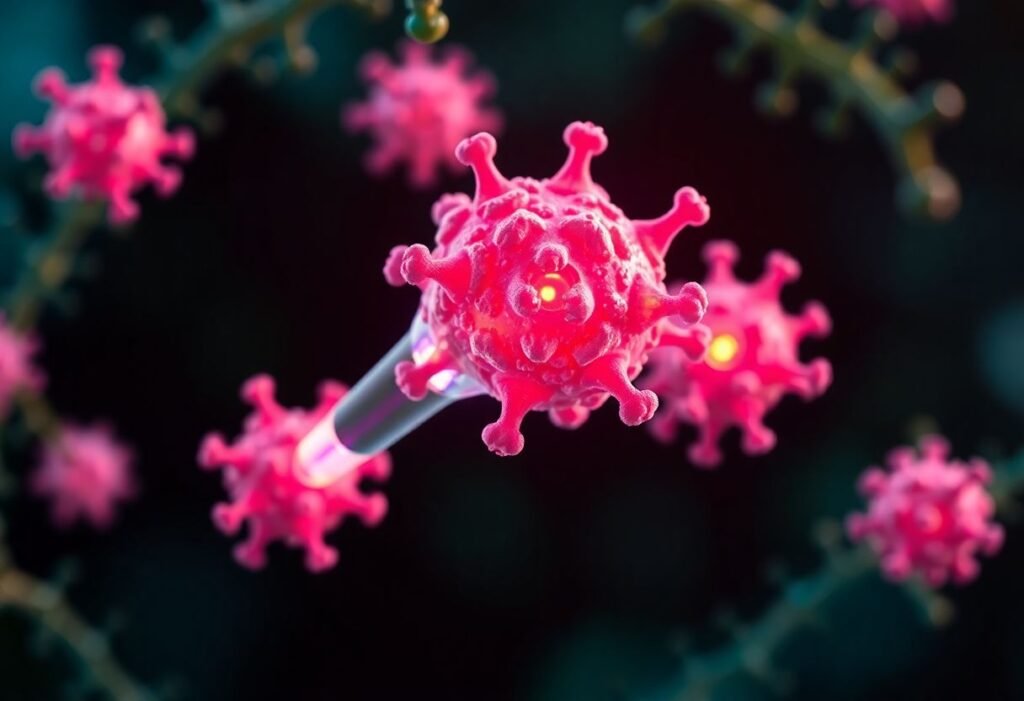Biotechnology is revolutionizing the realm of drug delivery systems, significantly enhancing treatment efficacy and patient outcomes. This innovation is leading us toward more effective therapeutic strategies that target specific diseases.
The Role of Biotechnology in Drug Delivery
Biotechnology plays a crucial role in transforming drug delivery systems by enabling the design of advanced carriers that can precisely target disease areas. These novel systems enhance the bioavailability of drugs and minimize side effects. By utilizing vector platforms such as liposomes, nanoparticles, and pH-sensitive carriers, biotechnologists can achieve controlled release mechanisms, ensuring that therapeutic agents are delivered at the right place and at the right time. This meticulous approach not only improves drug stability but also optimizes patient compliance, making the administration of complex therapies simpler and more effective.
Innovative Techniques in Targeted Drug Delivery
Current innovations in drug delivery techniques incorporate strategies such as gene delivery systems and antibody-drug conjugates. These methods allow for the direct targeting of diseased cells while sparing healthy tissue, thus reducing toxicity. For instance, nanotechnology has significantly advanced the ability to manipulate drug formulations at the nanoscale. This precision leads to targeted treatments that are particularly beneficial in managing conditions such as cancer. With fewer side effects and better efficacy, these approaches showcase how biotechnology is transforming the landscape of pharmaceutical development.
Personalized Medicine and Drug Delivery
Personalized medicine is emerging as a forefront innovation, and biotechnology’s contribution here is substantial. By utilizing genetic profiling, healthcare providers can tailor drug delivery systems to individual patients, enhancing treatment effectiveness and minimizing adverse effects. Biomarkers help identify patients who will benefit most from specific therapies, leading to more precise interventions. This paradigm shift towards personalized treatments ensures that patients receive therapies designed specifically for their unique genetic makeup, which bolsters recovery rates and improves overall healthcare outcomes.
Challenges and Solutions in Biotech Drug Delivery
Despite the impressive advancements, the biotechnology industry faces numerous challenges in drug delivery systems. Stability of therapeutic agents, scalability, and regulatory hurdles must be addressed to ensure safety and efficacy. Innovative solutions such as advanced modeling techniques and robust quality control measures are crucial for overcoming these challenges. Moreover, collaboration between biotech companies and regulatory bodies is essential to streamline the approval process, facilitating faster market access for novel therapies while ensuring patient safety.
Future Trends in Drug Delivery Systems
The future of drug delivery systems in biotechnology holds promising potential. Research is leaning towards the use of smart delivery systems that respond to physiological changes within the body. Such systems may use biosensors to detect specific biomarkers indicative of disease progression and adjust drug release accordingly. Furthermore, integrating artificial intelligence alongside biotechnological advancements could optimize drug formulation processes and patient management strategies, making advanced therapies more adaptive and accessible in the coming years.
The Impact of Regulatory Framework on Innovation
The regulatory landscape plays a critical role in shaping the future of biotechnological innovations in drug delivery. Organizations must navigate a complex set of guidelines to ensure that these innovative therapies are not only effective but also safe for patients. Regulatory agencies globally are adapting to accept these advancements, implementing frameworks that encourage innovation while maintaining rigorous safety standards. This balance is vital for advancing biotech solutions in drug delivery, ultimately fostering a more responsive healthcare system.
Disclaimer: The information provided in this article is for educational purposes only and should not be considered as medical advice.





















